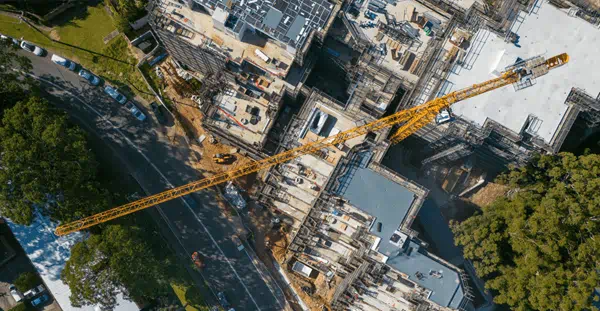The Paris Olympic Games are a significant milestone in the city's history, showcasing not only athletic prowess but also the culmination of meticulous planning and design efforts.
The Opening Ceremony on the Seine was a unique and memorable event and based on Arcadis’ own role advising part of the Games, it is timely to reflect on planning for Paris and explore what lessons there might be for the Brisbane Olympics in 2032.
Managing costs in an uncertain global environment
One of the initial challenges faced by the Olympic Delivery Authority (ODA) in Paris was how to accurately estimate costs in a shifting, uncertain global economic landscape. Arcadis was engaged to the ODA in this task, assessing the evolving costs of infrastructure and facilities. Despite a myriad of challenges, including the COVID-19 pandemic, geopolitical tensions, supply chain disruptions, and inflationary pressures, the ODA has succeeded in ensuring timely delivery of critical infrastructure such as the Athletes' Village.
Arcadis' advisory role extended beyond cost estimation to encompass regular insights into market and supply chain dynamics for key materials, inflationary trends and the impact on construction costs. Up-to-date intelligence helped the ODA to make informed decisions at every step, safeguarding the financial viability of the project.
Anticipating and proactively managing risks
One takeaway from the Paris Olympics is the significance of anticipating issues and taking a proactive and interventionist approach in project management. The French ODA’s willingness to foresee bottlenecks and commandeer critical project elements, notably the supply chain for key materials, helped it mitigate risk and maintain continuity amid external upheaval.
The focus on possible disruptions extended to transportation infrastructure and venue planning. Paris’ decentralised venue strategy means that while Games venues are dispersed, 90% are strategically positioned within a 10-kilometre radius of Central Paris. As well as allowing for streamlined logistical operations during the Games, decentralisation heightens the spectator experience, with iconic landmarks serving as picturesque backdrops for an array of events.
Designing for enduring impact
A defining feature of the 2024 Olympics has been its emphasis on legacy and sustainability – ensuring the Games leaves a lasting and meaningful impact on Paris’ urban fabric well beyond the four to five weeks of the Olympics and Paralympics events.
This is evident in the design of the Athletes' Village, which was built to a two-step construction process allowing the facility to be repurposed for social housing post-Games. By integrating social initiatives into the project planning, Paris has ensured long-lasting benefits for the community.
Paris has also prioritised sustainable practices throughout the project lifecycle, achieving a remarkable 94% reuse of materials in Games construction. This achievement not only reduces the carbon footprint of the Paris Games but sets a precedent for future host cities. The compact nature of the Paris Games enhances the sustainability profile, with reduced travel distances for participants and spectators translating to lower emissions.
Enhancing transport dynamics
Efficient transport infrastructure is indispensable for successful execution of any Games. While the existing public transport network in Paris is well regarded globally, alleviating congestion and enhancing accessibility during the Games has been a key focus for the ODA. Among other measures, the city has increased service frequency on critical transit routes, limited car access to certain areas, and created dedicated lanes for Olympic-related traffic.
Despite challenges such as delays in metro expansion projects, Paris adopted a pragmatic approach to mobility planning, electing to optimise existing infrastructure rather than rely on new developments. As well as reducing costs and project execution risk, this approach minimises the environmental impact associated with large-scale construction projects.
Paris – a model for Brisbane?
By any measure the Paris Games has been a successful exercise in major event planning and execution. From cost management and dual-use infrastructure planning to sustainability initiatives and transport planning, Paris has demonstrated the importance of foresight, collaboration, and adaptability in successfully pulling off an Olympics Games.
Insights gleaned from Paris are a valuable reference point for Brisbane in not only staging a memorable Games in 2032 but ensuring that the investment made in doing creates a long-lasting legacy for the city.





